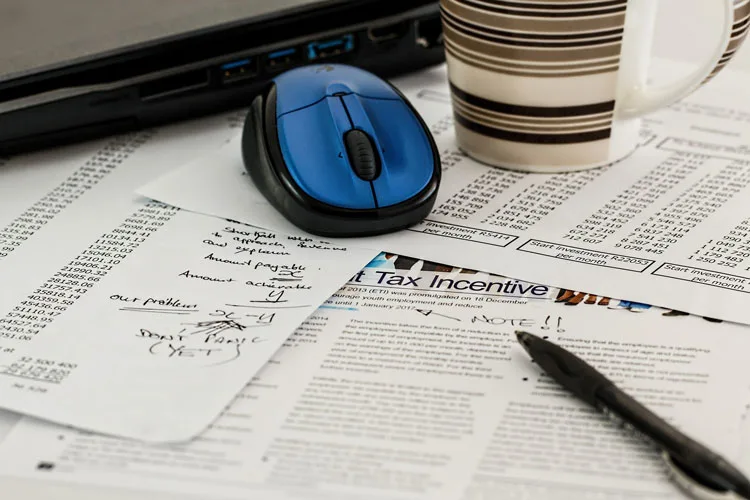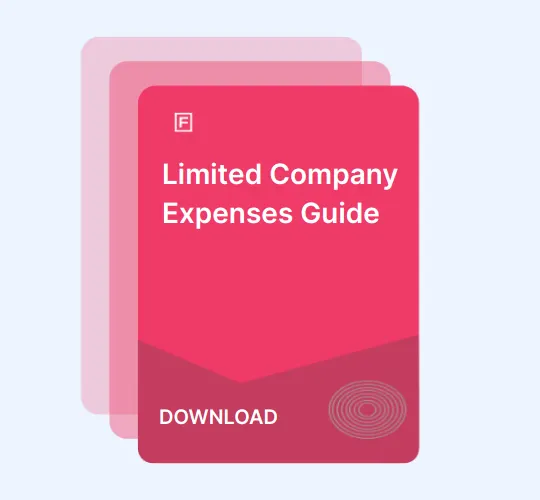Contents
IntroductionWhat is a Benefit in Kind (BIK)?Examples of Benefits in KindReporting and Paying Tax on BenefitsHow to Report Benefits in KindWhat are the Important Deadlines I Need to KnowMaintaining Proper Records
Introduction
For self-employed persons or employers, it can be challenging trying to understand the rules surrounding benefits in kind. These can be complicated; some benefits are taxable while others aren't, and it gets tricky figuring out which rules apply to your situation.
To make things a little easier to understand, we've written up a quick guide below. After reading our guide, you'll understand what benefits in kind are, have a clearer idea of which ones are taxable (and which ones aren't), and get an overview of what you need to do when it comes to reporting and paying taxes on benefits in kind.
Do keep in mind that this isn't a definitive guide, as HMRC's decision to impose a tax varies by situation. If you need specific advice, doconsult our specialist accountants at Forma.
For self-employed persons or employers, it can be challenging trying to understand the rules surrounding benefits in kind. These can be complicated; some benefits are taxable while others aren't, and it gets tricky figuring out which rules apply to your situation.
To make things a little easier to understand, we've written up a quick guide below. After reading our guide, you'll understand what benefits in kind are, have a clearer idea of which ones are taxable (and which ones aren't), and get an overview of what you need to do when it comes to reporting and paying taxes on benefits in kind.
Do keep in mind that this isn't a definitive guide, as HMRC's decision to impose a tax varies by situation. If you need specific advice, do consult our specialist accountants at Forma.
What is a Benefit in Kind (BIK)?
Benefits in kind (BIK)—also commonly referred to as fringe benefits or perks—are benefits provided to a director or employee that aren't included in their salary or wages. A Benefit in Kind (BIK) is anything employees receive from your employer other than the regular salary that has a value.
These can be assets or services, such as company cars, private health insurance or non-business travel, entertainment expenses, free accommodation, or even gym memberships. Benefits that have a monetary value will need to be reported to HMRC, as these might be subject to taxes.
Examples of Benefits in Kind
Here are some examples of taxable benefits in kind:
- Company vehicles
- Self assessment tax return fees paid by the company
- Private health insurance
- Non-business travel expenses
- Non-business entertainment expenses
- Loans
Other types of benefits in kind aren't taxable. These include:
- Staff meals provided at a canteen
- Certain types of childcare arrangements
- Payments to a pension
- Workplace sports facilities
- Workplace safety equipment
- Certain types of transportation expenses, such as subsidies for public bus services
You can check out HMRC's resource for further information on the different types of expenses and benefits, plus the associated tax treatment.
The rules surrounding each type of benefit can be complicated.
Depending on the context, HMRC may decide to impose a tax charge. As such, we recommend speaking to an accountant about your situation if you need personalised advice.
Reporting and Paying Tax on Benefits
Employers are required to report all benefits in kind at the end of the tax year.
As benefits contribute to an employee's income, there may be National Insurance contributions to be paid on them. These contributions are paid for by the employer at a rate of 13.8% of the determined value of the benefits in kind.
Benefits in kind can be reported and taxed in two ways:
1. Submission of the P11D Form
A P11D is a tax form that records the employment benefits that employees and directors of a company have received across the year.
As an employer, you'll need to submit a form for each employee that you've provided benefits or expenses for.
If you're self-employed, you're considered both the employer and employee. As such, you're responsible for filing the P11D.
You're also required to submit a P11D(b) if the conditions below apply.
The conditions for submitting a P11D(b) are:
- You've submitted any P11D forms
- You've paid your employees' expenses or benefits through your payroll
- You've received a reminder from HMRC
If you're not familiar with the P11D(b), it's a form that sums up the total amount of taxable benefits that an employer has provided for its employees, and indicates the amount of Class 1A National Insurance due on the expenses and benefits provided.
2. Paying Tax on Benefits Through Your Payroll
The second option is to deduct and pay tax on employee benefits through your payroll.
To do so, you'll need to register with HMRC before the start of the tax year (6th April). Do note while the P11D form isn't required if you're payrolling benefits, you'll still need to submit the P11D(b).
How to Report Benefits in Kind
You can report benefits in kind through the following:
What are the Important Deadlines I Need to Know
Maintaining Proper Records
In maintaining proper records, you'll be able to show that you've reported accurately, and that all the information in your end-of-year forms are correct should HMRC seek to review your records.
You'll need to keep a record of the following:
- The date and details of every benefit you've provided
- Payment that your employee has contributed to a benefit
- Information required to calculate the amounts indicated in your end-of-year forms
- Any communication you have with HMRC
All payroll records should be kept for three years from the end of the tax year they relate to. In many instances, employers retain these records for six years, as certain payroll records are also considered accounting records. The latter should be kept for six years following the end of a company’s accounting period.








































.png)